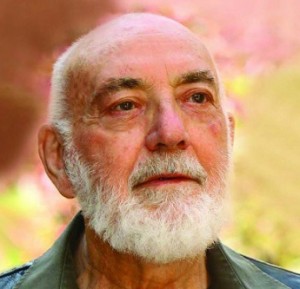Your best friend and worst enemy stares back at you in the bathroom mirror each and every morning. By and large, how you choose to treat yourself and others between ‘Morning Ireland’ and ‘Late Date’ is down to you and you alone. Blaming someone else for your lot in life might feel momentarily justified but that of course comes with a disclaimer: there are of course people trapped in appalling domestic circumstances whom, most would surely agree, unavoidably and justly feel that way.
Yet such unfortunate individuals, whose experiences I have detailed before and no doubt will return to again, are not the intended subject of this week’s offering. I am instead referring to those living in your typical domestic environment, holding down a 9 to 5 job (i.e. most of us) who may have reached the point where the day job feels somewhat robotic. When life itself feels episodic. But it doesn’t have to be that way. It shouldn’t be that way.

Thomas Kinsella's 'Mirror in February' is a poem I first read in my teens and, for a multitude of reasons, remains with me as middle age approaches.
Nobody has all the answers. Those who promote such snakeoil manifestos, those who are comfortable in exploiting the vulnerability of others for profit deserve to walk behind a fence on the other side of the road with nothing but the nearby weeds for company. After all, the best advice I’ve ever received has never left me reaching into my pocket. “Don’t grow up into a worrier like me,” my 73-year-old Grandmother told my 14-year-old self from her bed on more than one occasion before we said good night. In my case, that penny took over 20 years to finally drop, but drop it eventually did.
The “milk of human kindness” might well have been used by Lady Macbeth in relation to her husband’s lack of murderous intent towards his rivals, but those four words have resonated over five centuries. And like all heavily repeated language, that phrase has assumed different meanings and contexts since William Shakespeare first penned ‘The Scottish Play’ in the early 1600s. Yet it really is nice to be nice. It’s how you make friends. More importantly, it’s how you keep them. Being kind to myself, in addition to my Granny’s wisdom, are among the first thoughts I have each morning while brushing my teeth. If I’m not kind to myself on a daily basis, that lack of self-consideration is probably going to negatively impact on others, be it family, friends or work colleagues.
Self-consideration is a far cry from self-absorption. People who can’t look beyond the end of their own noses probably have anonymous Twitter handles which provide them with an outlet for most types of ‘ism’-related insults. Life’s too short to be tolerating assholes, so taking the time to consider the importance of self-kindness is, for me, the best means of avoiding a descent into a Sarlacc Pit of assholery. Now it’s not as if I wake up every morning in a Pollyanna state of perpetual contentment. I’m almost 40: many people I have loved over the course of my life have died, I’ve had my fair share of downs as well as ups and there have been times when I’ve not been at my best. Many times. How I wish they were fewer.
But nowadays, I’m not as hard on myself as I used to be. Why be self-defeating? Why opt for self-pity? Why pollute a living room or office with my innermost nonsense? It’s much easier to bring the dog for a walk, go for a run and try and quietly untangle such mental knots. It’s also much healthier. As Granny told me: why worry?
Thomas Kinsella’s ‘Mirror in February’ is the one Leaving Certificate poem which has stayed with me ever since first reading it. Now well past “the age of Christ” which Kinsella writes of, but well accustomed to garden maintenance and in possessing a more acute sense of my mortality, its final haunting verse still enthrals me:
Below my window the awakening trees,
Hacked clean for better bearing, stand defaced
Suffering their brute necessities,
And how should the flesh not quail that span for span
Is mutilated more? In slow distaste
I fold my towel with what grace I can.
Not young and not renewable, but man.
Kinsella argues those beyond Christ’s age “are not made whole”. Speaking only for myself, I feel a great deal more informed about what kind of person I am now and certainly more clued into the world around me than I did at 33. I’m comfortable with not being young and renewable. When I turned 33, I made a major personal course correction, one I derived no pleasure in making, but had I not taken that step, I genuinely don’t know where I’d be or how I’d relate to anything or anybody nowadays. And that’s no exaggeration. I had to stop worrying. I had to stop dreading the prospect of what the following day might bring. I had to teach myself to feel good about myself again. In the months following that course correction, I slowly regained a sense of self-worth and life got incrementally better. I’m happier now than I have ever been, but I don’t take it for granted. I quietly work away on being good to myself, and I hope that’s reflected in how I deal with others. As a so-called landmark birthday approaches, I’m not behind a fence on the other side of the road. That’s a path I’ll never darken a footprint of mine with.

